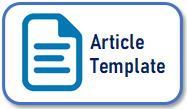Islamic Economics Seen from the Philosophy of Science and Integration-Interconnection Paradigm
DOI:
https://doi.org/10.14421/grieb.2022.101-07Keywords:
Islamic Economics, Philosophy of Science, Integration-Interconnection ParadigmAbstract
The dispute over the building of Islamic economics has not yet reached an agreement. Therefore, this article aims to analyze Islamic economics as science based on the philosophy of science and the integration-interconnection paradigm. This paper concludes that Islamic economics has not been methodologically clear enough, and how the concept of methodology works is obscure because there is no clear pattern. However, Muslim economists have almost agreed that Islamic economics is an independent discipline. Therefore, the approach of integration and interconnection is feasible to apply in developing Islamic economics as the established discipline.
References
Abdullah, M. A. (2012). Islamic studies di perguruan tinggi pendekatan integratif-interkonektif. Pustaka Pelajar.
Laldin, M. A., & Furqani, H. (2013). Developing Islamic finance in the framework of maqasid al-Shari’ah: Understanding the ends (maqasid) and the means (wasa’il). International Journal of Islamic and Middle Eastern Finance and Management, 6(4), 278–289. https://doi.org/10.1108/IMEFM-05-2013-0057
Al-Jarhi, M. A. (2017). An economic theory of Islamic finance. ISRA International Journal of Islamic Finance, 9(2), 117–132. https://doi.org/10.1108/IJIF-07-2017-0007
Al-Mustairi, M. (2014). Jadal at-ta`shil wa al-mu`ashiroh fi al-fikr al-Islami (1st ed.). Mansyurat Karim as-Syafi`i.
Al-Sadr, M. B. (1983). Iqtishaduna: Our economics. World Organization for Islamic Services.
Anwar, M. (1990). Islamic economic methodology. Journal of Objectives Studies, 2, 28–46.
Arif, M. (1987). The Islamization of knowledge and some methodological issues in paradigm building. American Journal of Islam and Society, 4(1), 51–71. https://doi.org/10.35632/ajis.v4i1.2869
Chapra, M. U. (1996). What is Islamic economics? In what is wrong with Islamic economics? IRTI-IDB. https://doi.org/10.4337/9781782544159.00011
Choudhury, M. A. (1999). Islamic economics and political economy. Humanomics, 25(5), 1–5.
Furqani, H. (2018). Defining Islamic economics: Scholars’ approach, clarifying the nature, scope and subject-matter of the discipline. Turkish Journal of Islamic Economics, 5(2), 69–93. https://doi.org/10.26414/m025
Furqani, H. (2019). What is Islamic economics? The view of Muhammad Baqir al-Sadr. Jurnal Ekonomi & Keuangan Islam, 5(2), 63–71. https://doi.org/10.20885/jeki.vol5.iss2.art3
Furqani, H., & Haneef, A. M. (2012). Theory appraisal in Islamic economic methodology: Purposes and criteria. Humanomics, 28(4), 270–284. https://doi.org/10.1108/08288661211277335
Hakim, L. (2018). Rekonsiliasi tradisi muslim dan sains modern.
Haneef, M. A., & Furqani, H. (2011). Methodology of Islamic economics: Overview of present state and future direction. International Journal of Economics, Management & Accounting, 19(1), 1–26. http://irep.iium.edu.my/41671/
Kahf, M. (2003). Islamic economics: Notes on definition and methodology. Review of Islamic Economics, 13, 23–47.
Khan, F. M. (2005). Methodology of Islamic economics. CERT Publishing.
Knott, K. (2005). The Routledge companion to the study of religion: Insider/outsider perspectives (John R. Hinnels (ed.)). Routledge.
Kuran, T. (1986). The economic system in contemporary Islamic thought: Interpretation and assessment. International Journal of Middle East Studies, 18(2). 135-164. http://www.jstor.org/stable/163259
Machlup, F. (1978). Methodology of economics and other social sciences. Academic Press.
Mannan, M. A. (1983). Islamic economics as a social science: Some methodological issues - Scope and objectives. Journal of King Abdulaziz University: Islamic Economics, 1(1), 41. https://ssrn.com/abstract=3126914
Haneef, M., A. (1997). Islam, the Islamic worldview, and Islamic economics. IIUM Journal of Economics & Management, 5, 39–65).
Munitz, M. K. (2005). Contemporary analytics philosophy.
Naqvi, S. N. H. (1981). Ethics and economics: An Islamic synthesis. The Islamic foundation.
Nasr, S. V. R. (1987). Towards a philosophy of Islamic economics. The Muslim World, 77(3–4), 175–196. https://doi.org/10.1111/j.1478-1913.1987.tb02799.x
Qoyum, A. (2018). Abdulkarim Soroush dan contraction and expansion theory.
Sardar, Z. (1988). Islamic futures: The shape of ideas to come. Pelanduk Publication.
Siddiqi, M. N. (1982). Some aspects of the Islamic economy. Islamic Publications ltd.
Zarqa, A. (2005). Islamic economics: an approach to human welfare. CERT Publishing.
Downloads
Published
Issue
Section
License
Copyright (c) 2023 Global Review of Islamic Economics and Business

This work is licensed under a Creative Commons Attribution-ShareAlike 4.0 International License.
Global Review of Islamic Economics and Business is licensed under a
Creative Commons Attribution-ShareAlike 4.0 International License



















